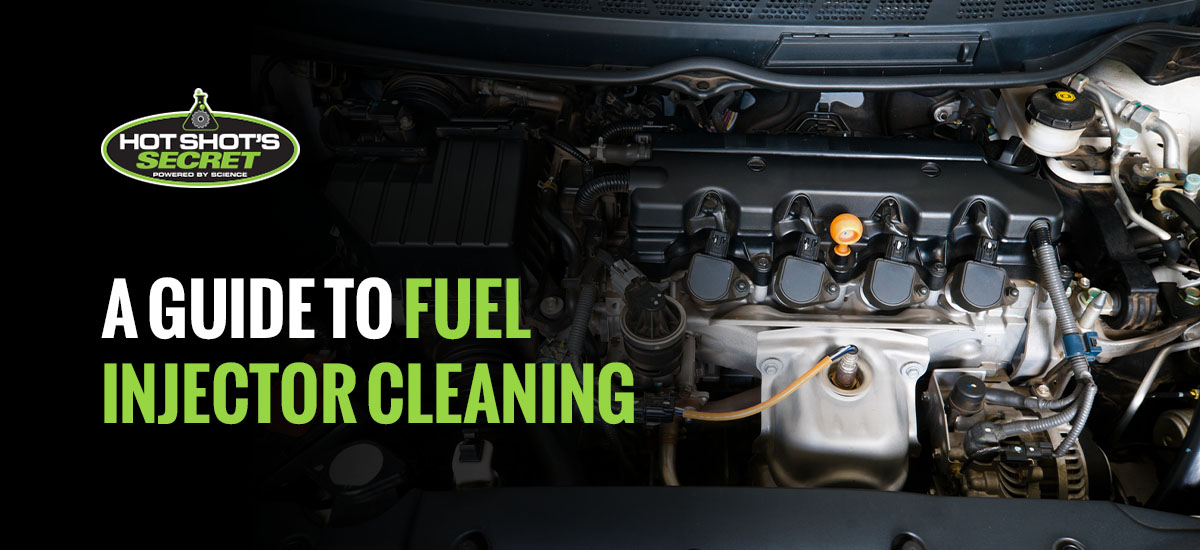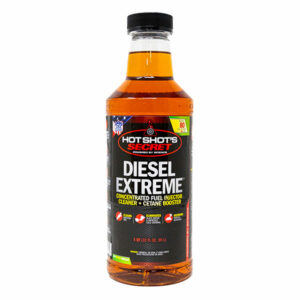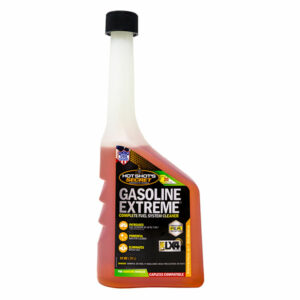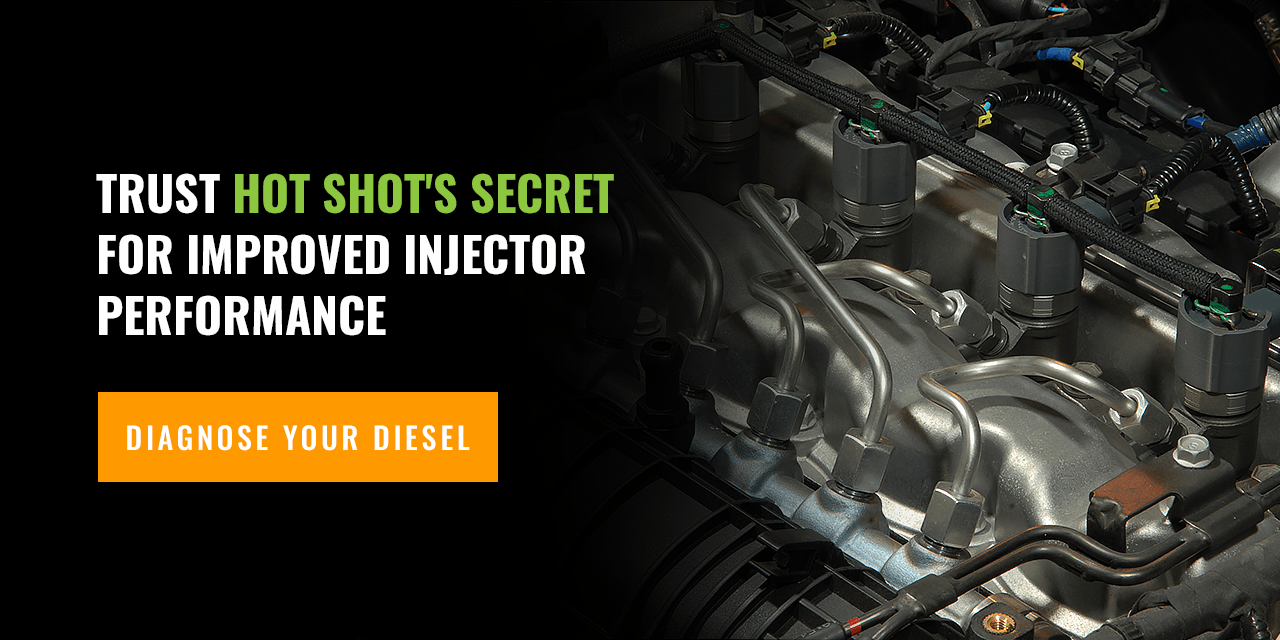
Fuel injectors become dirty and clogged when deposits build up after thousands of miles of frequent use. When this clogging occurs, the engine does not receive the correct amount of fuel it needs, causing lower fuel economy or a decrease in power. It’s vital to clean fuel injectors regularly and effectively to help remove harmful carbon deposits, prevent new deposits from occurring and improve overall performance.
What Is a Fuel Injector?
Gasoline and diesel engines inject fuel differently. Traditional gasoline engines use carburetors to mix fuel and air before sending it into the cylinder to compress. In contrast, modern gasoline engines use a port injection system that adds air to the fuel immediately before the intake stroke.
Diesel injectors send fuel directly into the engine’s cylinder. Diesel fuel requires more injection pressure because it’s heavier than gasoline and burns at higher temperatures.
Your vehicle’s fuel pump delivers fuel to the injectors, which can open and close as frequently as needed to control intake. During system operation, a plunger opens the injector, allowing pressurized fuel to escape through a tiny nozzle. This nozzle atomizes the fuel, turning it into a fine mist so it can burn easier.
When heavy deposits and clogs are present, the injectors cannot deliver the optimal amount of fuel to the engine.
How Do Fuel Injectors Work?
Fuel injectors spray gasoline and diesel into engines to keep them running. The fuel pumps, filters and injectors work together to ensure that engines receive the necessary amount of fuel and air to ignite in the combustion chamber, powering your engine. Fuel is sprayed into the combustion chamber rather than poured or vacuumed. Spraying the fuel allows for more control over the amount of fuel allowed into the chamber, ensuring a precise and consistent fuel stream. The fuel is also atomized when it is sprayed and burns more efficiently.
The fuel injection process follows these steps:
- The fuel pumps send fuel to the injector.
- The fuel injector sprays the gas into the intake manifold.
- The fuel and air combine in the intake manifold.
- The air and fuel mixture is compressed in the combustion chambers and ignites, powering the engine.
The engine control unit (ECU) regulates fuel injection. It controls how much fuel is delivered to the fuel injectors and sprayed into the combustion chamber. The ECU also times the delivery of the fuel.
Types of Fuel Injection Systems
There are three types of fuel injection systems — single-point, multi-point and sequential. Each type has different benefits:
- Single-point fuel injection: This system uses only one fuel injector. It is the least expensive method and the easiest to service. However, other injection systems are more precise and efficient. Single-point systems were the first type of fuel injectors and are less widely used today.
- Multi-point fuel injection: These systems have multiple fuel injectors positioned next to each cylinder in the intake port, making it easier to achieve the proper fuel and air mix. The injectors typically inject fuel all at once. They are more commonly used than single-point injection systems.
- Sequential fuel injection: This system is similar to the multi-point system except the injectors fire independently in sequence instead of all together. Firing sequentially increases fuel delivery efficiency. Sequential fuel injection systems are more accurate and precise and are the most commonly used injection systems in modern cars.
Symptoms of Bad Fuel Injectors
Fuel injectors are a key component of any car. Over time, they may become clogged with debris or develop other faults that may hamper their performance. An underperforming fuel injector can significantly impact your fuel economy and safety. Here are a few symptoms of bad fuel injectors:
- Check engine warning light: There check engine light may come on for many reasons, including fuel injectors that need cleaning, repair or replacement.
- Misfiring and vibrating engine: If your car is misfiring, delayed when accelerating or vibrating while driving, it may be because the engine is not receiving enough fuel at the right times.
- Changes in idling: If your idling feels rougher than usual or the idle noise is different, it may be a sign that the fuel injectors are underperforming.
- Unexplained stalling: Frequent stalling can indicate clogged fuel injectors, especially if you aren’t causing the stalling.
- Reduced fuel economy: An underperforming or damaged fuel injector can decrease fuel economy. The ECU sends more fuel to the injectors as it is not receiving enough fuel in the combustion chamber.
How Much Does It Cost to Replace Fuel Injectors?
The cost to replace fuel injectors will depend on your car model, the fuel injection system it uses and if you get a mechanic to replace it. Depending on the model, it can cost several hundred to nearly a thousand dollars to replace fuel injectors. These costs increase with the complexity of the system. Replacing fuel injectors in high-end, eight-cylinder engines can cost a few thousand dollars.
How to Clean Your Fuel Injectors
Cleaning your fuel injectors can help maintain their performance and prevent further damage or deterioration. In many instances, fuel injectors need to be cleaned rather than replaced. Injector cleaners contain different solvent types formulated to clean your fuel lines. Consumers typically add these cleaners directly to a full fuel tank, allowing the cleaner to move through the injectors as the engine burns the regular fuel.
The solvents work by dissolving the buildup inside the injectors and other parts of the fuel line. Because the solvents are combustible, they burn off with the fuel as your engine runs and are not harmful to your vehicle.
Depending on the cleaner’s formula and fuel type, these products contain different ingredient combinations. Many injector cleaners add extra benefits besides cleaning, like removing moisture from fuel lines and reducing misfiring and knocking.
Frequently Asked Questions About Fuel Injector Cleaning
Does Fuel Injector Cleaning Work?
Most gas and diesel consumers buy at pumps contains additives to clean injectors and fuel lines. However, removing heavier deposits from your fuel system requires higher additive concentrations than those from the pump. That’s where fuel injector cleaners come into play. Studies show that high-performance fuel injector cleaners like Hot Shot’s Secret can increase fuel efficiency by 2.1% in the city and 5.1% on highways. They can also reduce emissions.
Deposits on the fuel injectors reduce combustion capacity. Fuel injector cleaners remove these deposits, allowing optimal fuel delivery and combustion.
How Fast Do Fuel Injector Cleaners Work?
Although most fuel injector cleaners begin working immediately, it takes time before the improvements become noticeable. Before the cleaners start working effectively, the vehicle should travel several hundred miles and burn a good portion of a full fuel tank. Noticeable improvements include increased acceleration, higher fuel mileage and smoother idling.
The improvement rate can depend on several factors, like the quality of the cleaner you use and the condition of your fuel system. If you’re using a reliable high-strength cleaner on a newer engine with minimal buildup, the sludge should dissolve rapidly, returning your engine to peak performance. If your vehicle has an older engine with increased contamination in the fuel system, it often takes longer for the cleaner to have a positive effect.
How Often Should You Use Injector Cleaner?
Many industry professionals recommend using a high-performing fuel injector cleaner at each oil change. While some manufacturers recommend oil changes at different intervals, using a fuel injector cleaner every 6,000 miles for most vehicles can be beneficial. If your vehicle shows decreased performance in acceleration, reduced fuel economy or irregular idling, adding a fuel injector cleaner to your fuel tank as needed may help.
If your injectors are still causing problems after you use a high-quality cleaner, you should visit a reliable repair shop to diagnose your problem accurately.
High-Performance Injector Cleaners by Hot Shot’s Secret
At Hot Shot’s Secret, we prioritize fixing engine problems and improving performance for vehicle owners worldwide. Much of our success comes from the advanced testing and engineering procedures we use before marketing our products. We carry several fuel additives for specific types of engines and fuel systems, including Diesel Extreme and Gasoline Extreme.
- Diesel Extreme: Hot Shot Secret’s Diesel Extreme is a high-performance, 6-in-1 additive for diesel engines that contains the most concentrated detergent formula available. These detergents remove and prevent external diesel injector deposits (EDIDs), internal diesel injector deposits (IDIDs) and other harmful deposits that often cause your fuel system’s most vital components to fail prematurely. Diesel Extreme also contains a powerful cetane improver that can increase your fuel’s cetane rating up to seven points, improving horsepower, fuel economy and combustibility.
- Gasoline Extreme: Hot Shot Secret’s Gasoline Extreme is a concentrated fuel injector cleaner that cleans the most critical components of your fuel system while removing carbon deposits from your engine’s combustion chamber. Gasoline Extreme also lubricates your upper cylinders to restore power, fuel economy and performance. This fully formulated solution can clean almost any part of your gas engine, from valves and pumps to rings and pistons.
Contact the Experts at Hot Shot’s Secret Today
If you’ve been searching for a high-quality, scientifically proven fuel injector cleaner for your diesel or gas engine, Hot Shot’s Secret can help. Browse our product selection today to find some of the best fuel injector cleaners. Contact us online or call 800-341-6516 with questions or to request additional product information.



